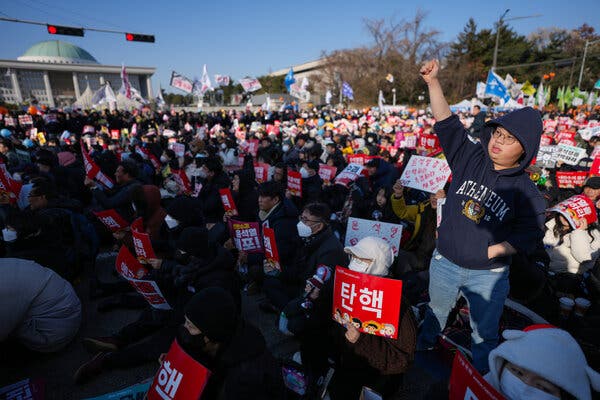The finance minister said Beijing would sell bonds to supplement spending and help banks but did not detail how much.

China’s powerful Ministry of Finance said on Saturday that it would borrow more to help cash-short localities and put more money in the hands of state-owned banks, an effort to address a severe slowdown in real estate and shore up crumbling consumer confidence.
Lan Fo’an, the finance minister, did not detail how much additional borrowing or spending the government was ready to commit to bolster weak domestic consumption, stabilize the country’s real estate market and strengthen banks. But he hinted that such a plan might still be under development.
“After due procedures, we will release the number to society,” he said.
The announcement followed a flurry of other economic stimulus moves last month that pushed stocks in China sharply higher, before they fell in the past week as investors grew concerned the government might not do enough to make a difference.
On Saturday, Mr. Lan and Liao Min, a deputy finance minister, said that the ministry planned to inject money into the country’s biggest banks, increasing the lenders’ ability to withstand losses and keep extending the credit that the economy needs for growth. Many investors believe the banks have sustained heavy losses on loans to companies and households throughout China’s housing market crash, although the banks have acknowledged few losses so far.
Mr. Lan repeatedly said the finance ministry wants local governments to raise money by selling assets. Many municipal governments have built office buildings, hotels and convention centers over the past three decades of often manic investment.
But with real estate prices plunging, localities have been reluctant to sell properties for what could be a fraction of what they paid for them. Mr. Lan also promised continued investigations of how local governments had spent their money, addressing a public perception that official misconduct may have contributed to the financial difficulties of many state-owned enterprises and localities.
China’s consumer confidence index
Source: China National Bureau of Statistics, via CEIC Data
By The New York Times



